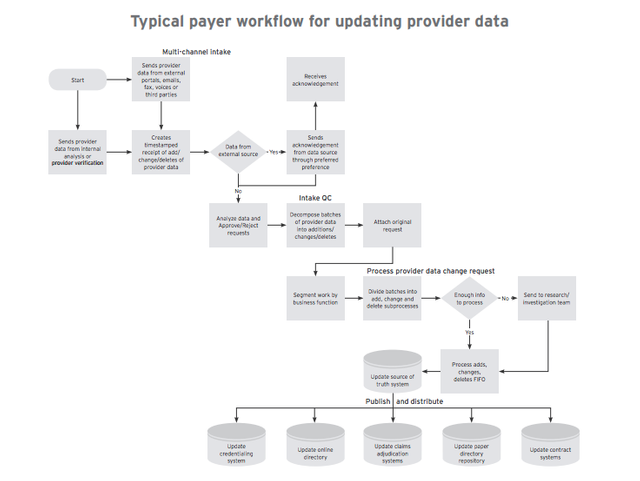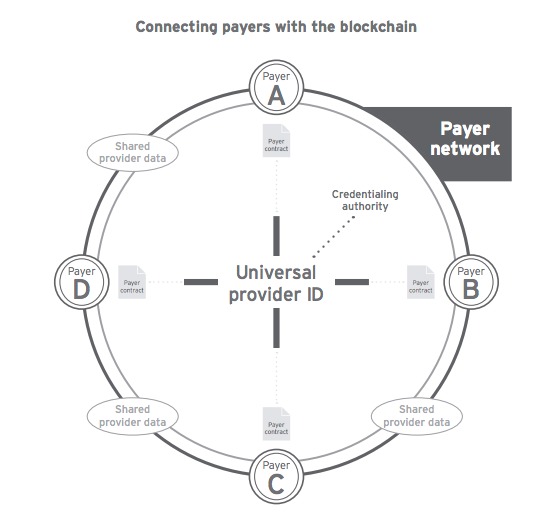The Industries (Beyond Cryptocurrency) That Will Be Transformed by Blockchain Developers
By now we’re all familiar with the basic concepts of Blockchain, a design pattern in computing that allows you to create a chain of signed events, linked and secured using cryptography (if you’re not, check out WTF is The Blockchain). It’s tamper evident and tamper resilient. Blockchain is beginning to find itself in the use cases where rigorous tracking is most important. Places where events need to be perpetually verifiable for the entire lifespan (forever).
So why are so many people excited and optimistic about it?
The network’s job is to run verification math on each transactions. Network members (nodes) perform redundant tasks in part of the decentralization operating Blockchain verifications. There is a consensus formed. If the majority of the network running the Blockchain agrees that the chain events are accurate, consider it notarized.
Right now, there’s a ton of buzz around Blockchain because it’s tied to a massive amount of money. With the most recent spike, where prices jumped 10,000%, the world started taking notice. In fact, the three largest cryptocurrencies today, Bitcoin, Ethereum, and Ripple, have a market cap of $370,000,000,000, and that continues to change. Digital currency demonstrates a good template for how we do business in the future.
And with that, we’re seeing new businesses invented. More common we now see better ways to do business that we didn’t have before. So what are the implications of Blockchain beyond cryptocurrency?
In this post, we’ll look deeper into two use cases outside of cryptocurrency, and how they’ll be transformed by Blockchain technology.
Healthcare and Hyperledger
It’s safe to say that healthcare technology lags behind other industries in innovation and progress, especially around data transmission and security. Sharing and collaboration is siloed between private and public organizations, 3rd party companies, and the patients themselves.
Blockchain will transform healthcare by allowing data to be shared and verified by individuals, organizations, and personal devices. It will change the way that clinics, hospitals, pharmacies, and insurance companies manage and share their data. It will deliver a fullchain of record, irrefutable, for the vast amounts of healthcare data spread across the globe today. For example, proof of insurance is overlooked during admittance. Insurance cards are easily faked an IDs are not verified by identity.
One of the leaders of this initiative is Hyperledger, a multi-billion dollar initiative led by IBM to research and find new profit centers in products using Blockchain. Their aim is to unite the disparate processes in healthcare, making data flow more efficient and improving patients experiences and outcomes.
Their case study into how provider data is handled is particularly interesting. The quality of the data doesn’t correlate with its value to the industry. They found that 40% of a payer’s provider records contain errors or missing information. Why? The processes for tracking and updating data are manual, archaic, and siloed.

So, how does Blockchain change this? Today’s distributed Blockchain networks are not efficient at storing large amounts of data, since each node needs to duplicate each block to maintain the shared copy of the ledger. This is expensive and inefficient given the vast amounts of provider data in a single healthcare system, not to mention global healthcare. Instead, Hyperledger proposes using existing data stores and Blockchain identity and permissioning to connect existing “source of truth” databases and securely communicate data updates across the network. As a result, we have a network of payers maintaining a single copy of the data, and broadcasting the changes to the network.

For a detailed deepdive into the healthcare Blockchain design patterns, I strongly recommend reading the Hyperledger whitepaper.
Chat
Messaging apps have already hit the mainstream, and we’ve seen a ton of players out there innovative on the core functionality, sending and receiving messages. Slack and Stride have transformed team collaboration, Signal and Telegram encrypted chat, and Watson and api.ai powering chatbots. We don’t just talk in the messaging feed anymore — we track geolocation of packages, buy and sell goods through chatbots, and pipe in data from 3rd party systems and APIs. The chatfeed continues to grow in functionality, diversity and importance.
Blockchain and chat is going to be huge. However, there’s a big difference in what we can do today, versus what we’ll be able to do in the future. New capabilities will be available with Blockchain transforming chat today.
In a nutshell, Blockchain allows us to de-anonymize important agreements in chat, and provides a permanent, verifiable storage of chat logs. There are some great use cases for this, already in-action today:
Sending and receiving money in chat
Telegram has started to develop this with Blockchain. This enables chat users to send funds to their friends and pay for services securely. There are no central banks or holdings to delay the transaction.
Invoicing
Blockchain allows you to establish a business line of agreement. Chat users can create an on-demand invoice to exchange goods. The invoice is “notarized” by the Blockchain network, money is exchanged, and the exchange is stored in the permanent ledger. The big difference from just sending money is that it’s publicly recorded
Record of Agreement
Blockchain also enables users to record the conversation between users and notarize and store it in the permanent Blockchain ledger. For sensitive chat conversations — healthcare, financial agreements, insurance, etc — storing these conversations (or reference URIs) in the Blockchain creates a irrefutable copy of the conversation.
Big Banks and Ripple
Today, it can take more than a week to transfer money between big banks using ACH and SWIFT. You could literally grab the money in cash, fly it over to another country, and hand it off in person faster. The system is nowhere near as efficient as it should be.
This is how Ripple, using Blockchain, acquired the attention of the big banks.
With Ripple, a money transfer takes seconds. It’s verified by the entire network, and set in stone any transfer of funds cross-bank. At this point, why would a bank say “we’re fine, we don’t really need to replace our tech.” If banks don’t jump on the bandwagon, we’re going to see a shift towards using these cryptocurrencies as a way to transfer money, and in turn make massive profits on sending and receiving money. Simply put, if banks lose out to crypto as a way to send money, they’re going to hurt.
Looking Forward
I’m super excited about the potential of Blockchain to transform every industry across the globe today. There’s the obvious cryptocurrency implications, but that’s just the beginning. From transforming the financial market and how money moves, down to individual chat messages that the everyday person is sending, Blockchain will play a role.
pc-=stephen blum